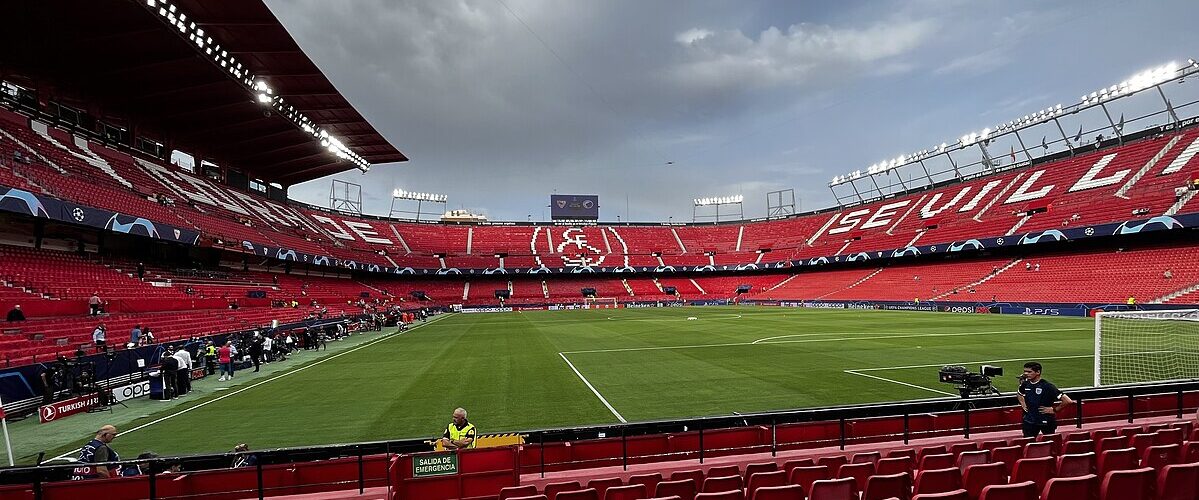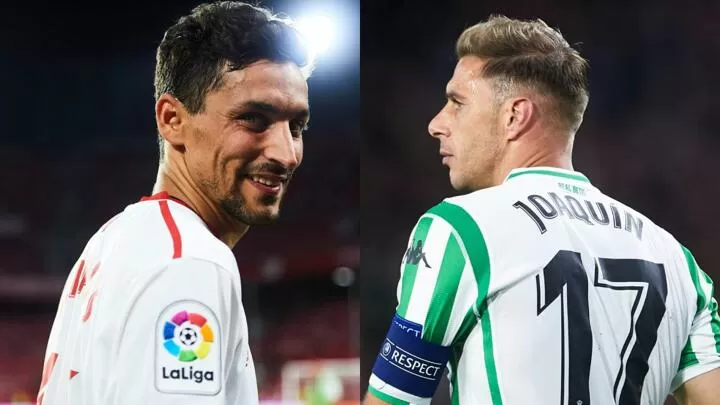Local rivalries in football are often charged with emotion, pride, and history, making them significant events for players, fans, and clubs alike. One such rivalry that stands out is the Sevilla Derby, contested between Sevilla FC and Real Betis. This fierce rivalry is not just a battle for bragging rights in the city of Sevilla but also a crucial factor that influences team morale, fan engagement, and the overall success of both clubs. This blog will delve into the intricacies of the Sevilla Derby, exploring its historical context, the psychological impact on players, and how it shapes team dynamics and fan culture.
Historical Context of the Sevilla Derby
The Sevilla Derby, known as the «Derbi Sevillano,» dates back to 1915, making it one of the oldest rivalries in Spanish football. The two clubs, Sevilla FC and Real Betis, are based in the city of Sevilla and have distinct identities that resonate deeply with their respective fanbases.
Sevilla FC
Founded in 1890, Sevilla FC is one of the most successful clubs in Spanish football history, boasting numerous domestic and international titles, including multiple UEFA Europa League trophies. The club has a rich tradition and a strong following, known for its passionate fans who fill the Ramón Sánchez Pizjuán Stadium on matchdays.
Real Betis
In contrast, Real Betis, founded in 1907, has its own storied history and a loyal fanbase. While Betis has experienced fluctuations in success, it has a dedicated following that passionately supports the team through thick and thin. The Estadio Benito Villamarín, home to Betis, becomes a cauldron of noise and fervor during derbies, with fans demonstrating unwavering loyalty to their club.
The Formation of the Rivalry
The rivalry between Sevilla FC and Real Betis emerged from more than just geographical proximity; it was also fueled by socio-economic factors and historical events. The clubs represent different segments of Sevillian society, with Sevilla FC often seen as the club of the upper class, while Real Betis is associated with the working class. This socio-economic divide has added layers to the rivalry, intensifying the passion and animosity during derby matches.
The Psychological Impact on Players
The Sevilla Derby is not merely another match on the calendar; it carries immense psychological weight for the players involved. The pressure to perform in front of passionate supporters can significantly influence player morale, motivation, and overall performance.
The Weight of Expectations
For players, the expectations surrounding the Sevilla Derby can be overwhelming. Both sets of fans have high hopes for victory, and players understand the importance of the match in the context of the season and their club’s legacy. The psychological burden of wanting to deliver a win for their supporters can lead to increased anxiety and pressure.
Building Confidence and Morale
Conversely, success in the derby can serve as a powerful confidence booster. Winning against local rivals can elevate team morale, creating a positive atmosphere within the squad. The sense of pride and accomplishment that comes with a derby victory can galvanize players, fostering a strong sense of unity and purpose. The psychological boost from winning such a crucial match can also carry over into subsequent fixtures, influencing performance and results throughout the season.
The Role of Leadership
Team leaders play a pivotal role in managing the psychological aspects of the Sevilla Derby. Experienced players often take it upon themselves to motivate and guide their teammates, emphasizing the importance of the match and its implications for team morale. Strong leadership in the dressing room can help alleviate pressure, allowing younger players to focus on their performance rather than the weight of expectations.
Team Dynamics and Cohesion
The Sevilla Derby has a profound impact on team dynamics, influencing how players interact with one another and how they approach matches. The intense atmosphere surrounding the derby can either strengthen bonds among teammates or expose cracks in team cohesion.
Fostering Unity
In preparation for the derby, coaches often emphasize teamwork and unity, knowing that a collective effort is essential for success. The shared experience of preparing for such a high-stakes match can bring players closer together, fostering camaraderie and a sense of purpose. The need to fight for each other on the pitch can create lasting bonds that contribute to a positive team environment.
The Challenge of Pressure
However, the pressure of the derby can also highlight weaknesses in team dynamics. Players who struggle to cope with the intensity of the occasion may become isolated, impacting overall performance. If key players fail to handle the pressure, it can create tension within the squad, leading to communication breakdowns and a lack of cohesion on the pitch.
The Coach’s Role
Coaches play a critical role in managing team dynamics during derby week. Their ability to create a focused and composed environment can significantly influence how players perform under pressure. Tactics may be adjusted to account for the emotional intensity of the match, with an emphasis on maintaining composure and executing game plans effectively.
Fan Engagement and Morale
The Sevilla Derby is as much a celebration of football culture as it is a sporting contest. The fervent support from fans elevates the experience for players and creates an electric atmosphere that resonates throughout the city.
The Passion of the Fans
The passion of Sevilla’s football fans is unrivaled, with both Sevilla FC and Real Betis boasting dedicated supporters who live and breathe their clubs. Matchdays become a spectacle, with fans creating a vibrant and intimidating atmosphere that can inspire players to perform at their best. The chants, flags, and displays of loyalty create a sense of belonging, fueling the players’ desire to win.
Influence on Player Performance
Players often cite the impact of fan support as a motivating factor during the Sevilla Derby. The energy generated by the crowd can push players to elevate their performance, knowing that they are representing not just their club but an entire community. The desire to reward fans for their unwavering support can drive players to give their all on the pitch, resulting in memorable performances.
The Aftermath of Victory
Victory in the Sevilla Derby brings immense joy and pride to fans. The celebrations that follow a derby win are intense and emotional, as supporters revel in their team’s triumph. The positive atmosphere created by success can enhance team morale, creating a ripple effect that extends beyond the pitch. A derby win can strengthen the connection between players and fans, fostering a shared sense of achievement.
The Role of Media and Public Perception
The media plays a significant role in shaping the narrative surrounding the Sevilla Derby. Coverage of the match often heightens anticipation and adds to the psychological pressure faced by players. The portrayal of players, coaches, and fans can influence public perception and create a narrative that players must navigate.
Media Pressure
Leading up to the derby, media scrutiny intensifies, with headlines and stories often focusing on the significance of the match and its implications for both clubs. Players may find themselves under increased pressure as journalists analyze their performances and speculate on potential outcomes. This media attention can amplify the psychological burden, making it crucial for players to stay focused amid the noise.
Shaping Expectations
The media’s portrayal of the derby can also shape fan expectations. Commentary and analysis may create heightened anticipation for the match, which can translate into pressure for players to deliver a strong performance. The ability to manage external expectations while maintaining focus on the game becomes essential for success.
The Broader Implications of the Rivalry
The Sevilla Derby extends beyond the immediate context of the match itself; it has broader implications for both clubs, the local community, and the footballing landscape in Spain.
Economic Impact
The rivalry generates significant economic benefits for both clubs and the local economy. High attendance at derby matches leads to increased revenue from ticket sales, merchandise, and hospitality. The vibrant atmosphere surrounding the derby can also attract tourists and visitors to Sevilla, further boosting the local economy.
Community Engagement
The rivalry fosters community engagement, bringing together supporters from diverse backgrounds. The passion for football transcends social and economic divides, creating a sense of belonging among fans. The derby serves as a platform for fans to express their pride in their clubs and their city, reinforcing the cultural significance of football in Sevilla.
The Future of the Rivalry
As football continues to evolve, the Sevilla Derby will remain a central fixture in the calendar for both clubs and their supporters. The passion and intensity that characterize this rivalry are unlikely to wane, ensuring that it remains a source of excitement and anticipation for generations to come.
The Sevilla Derby is more than just a football match; it is a powerful reflection of community identity, passion, and history. The impact of local rivalries, particularly in the context of the Sevilla Derby, influences team morale, player performance, and fan engagement. The psychological dynamics at play during derby week can shape the outcomes of matches, while the fervent support from fans creates an electrifying atmosphere that elevates the experience for players and supporters alike.
As both Sevilla FC and Real Betis continue to compete for supremacy in their city, the rivalry will undoubtedly persist, evolving with the changing landscape of football. The intense emotions, historical significance, and cultural impact of the Sevilla Derby ensure that it remains one of the most captivating rivalries in the sport, embodying the essence of football’s ability to unite and divide in equal measure.

